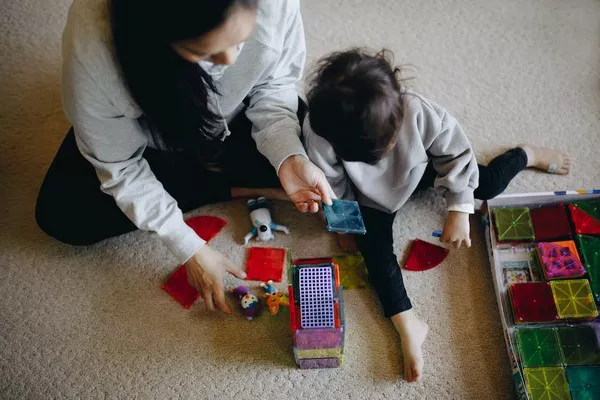Parenting is a journey filled with challenges, joys, and responsibilities. As parents, we play a crucial role in shaping the future by nurturing and guiding our children. Amidst the complexity of modern life, it’s essential to understand the fundamental tasks of parenting that serve as a compass, guiding us through the ups and downs of raising children. In this article, we delve into the four basic tasks of parenting, exploring their significance and implications in today’s world.
1. Providing Physical Care and Nurturance
At the core of parenting lies the responsibility of providing physical care and nurturance to our children. This task encompasses meeting their basic needs for food, shelter, clothing, and safety. From infancy to adolescence, children rely on their parents to ensure their well-being and development.
In the early years, physical care involves feeding, bathing, and ensuring a safe environment for the child to explore and learn. As children grow, parents must adapt to their changing needs, providing adequate nutrition, medical care, and opportunities for physical activity.
Moreover, physical nurturance extends beyond meeting basic needs to fostering emotional connection and support. Hugs, kisses, and comforting words convey love and security, nurturing a child’s sense of belonging and self-worth. Through physical care and nurturance, parents lay the foundation for healthy growth and development, fostering resilience and emotional well-being in their children.
2. Instilling Values and Moral Development
As stewards of the next generation, parents play a pivotal role in instilling values and shaping moral development. In a world filled with diverse influences, parents serve as the primary guides, imparting ethical principles and beliefs that shape their children’s character and behavior.
From honesty and empathy to respect and responsibility, the values parents instill serve as a compass, guiding children through life’s moral complexities. Through modeling behavior, providing moral instruction, and engaging in meaningful conversations, parents nurture their children’s conscience and moral reasoning, equipping them with the tools to navigate ethical dilemmas and make principled decisions.
In today’s interconnected world, characterized by rapid technological advancements and cultural diversity, the task of instilling values becomes increasingly complex. Parents must navigate competing influences, from social media and peer pressure to cultural norms and societal expectations. Nonetheless, by fostering open communication, critical thinking, and empathy, parents can empower their children to uphold values that promote justice, compassion, and integrity.
3. Promoting Intellectual Growth and Learning
Education is a cornerstone of parenting, encompassing not only formal schooling but also the broader process of intellectual growth and learning. From the moment children are born, they are curious, eager to explore the world and make sense of their experiences. As parents, we have a responsibility to nurture this innate curiosity, fostering a love for learning that lasts a lifetime.
Promoting intellectual growth involves creating a stimulating environment that encourages exploration, discovery, and critical thinking. From reading bedtime stories to engaging in hands-on activities, parents play a vital role in expanding their children’s minds and nurturing their intellectual potential.
In today’s knowledge-based economy, the importance of education has never been greater. Parents must support their children’s academic endeavors, providing resources, encouragement, and guidance along the way. Moreover, in a rapidly changing world, where information is readily accessible, parents must cultivate skills such as adaptability, creativity, and problem-solving, equipping their children to thrive in an ever-evolving landscape.
4. Fostering Social and Emotional Development
Humans are inherently social beings, wired for connection and belonging. Fostering social and emotional development is thus a fundamental task of parenting, encompassing the development of interpersonal skills, emotional intelligence, and resilience.
From infancy, children begin to form attachments with their caregivers, laying the foundation for future relationships. Parents play a central role in nurturing these attachments, providing a secure base from which children can explore the world and develop trusting relationships with others.
As children grow, they encounter a myriad of social and emotional challenges, from navigating friendships to managing conflict and coping with adversity. Parents serve as coaches and mentors, teaching their children essential social and emotional skills such as empathy, communication, and self-regulation.
In today’s interconnected world, characterized by social media and digital communication, the task of fostering social and emotional development takes on new dimensions. Parents must help their children navigate the complexities of online interactions, promoting digital literacy and responsible use of technology. Moreover, as societal norms and expectations evolve, parents must cultivate resilience and adaptability in their children, equipping them to thrive in diverse social contexts.
In conclusion, parenting is a multifaceted journey that requires dedication, patience, and love. By understanding and embracing the four fundamental tasks of parenting—providing physical care and nurturance, instilling values and moral development, promoting intellectual growth and learning, and fostering social and emotional development—parents can nurture the next generation with confidence and compassion, shaping a brighter future for all.


